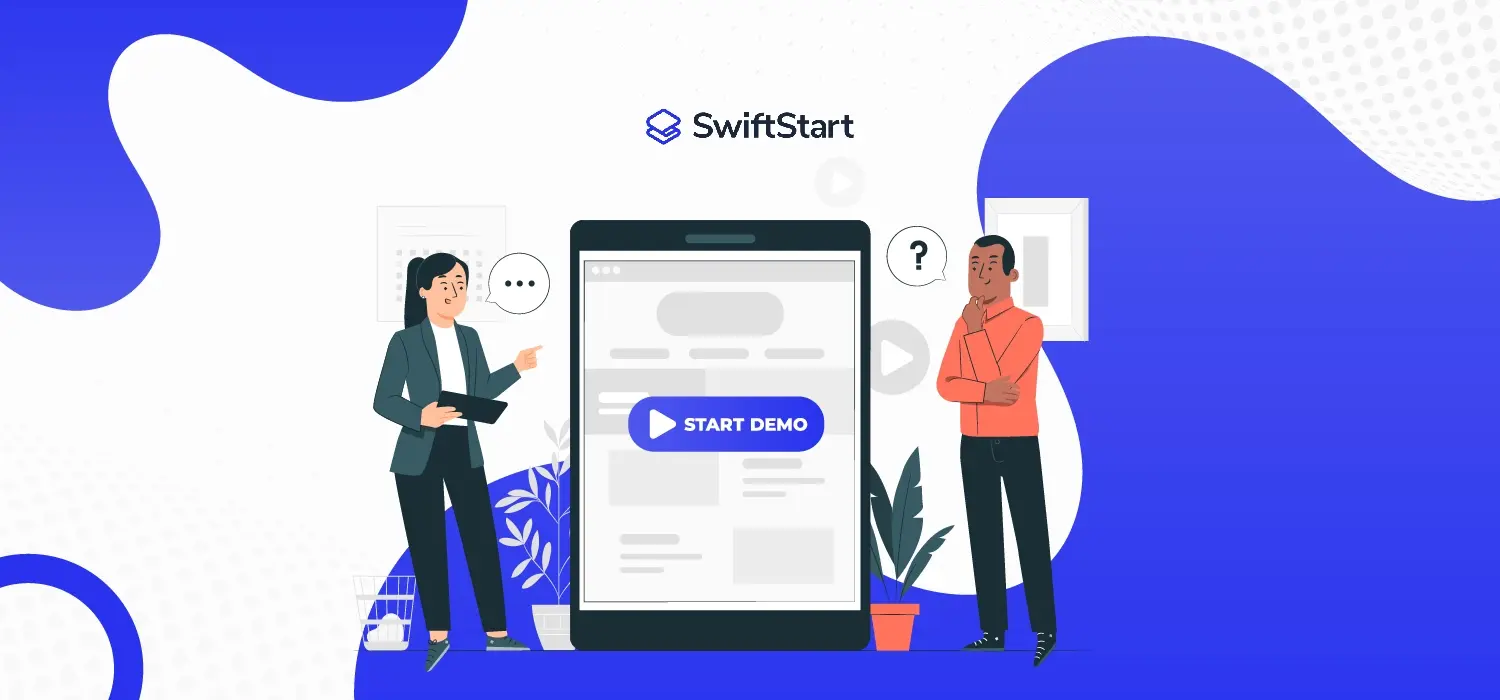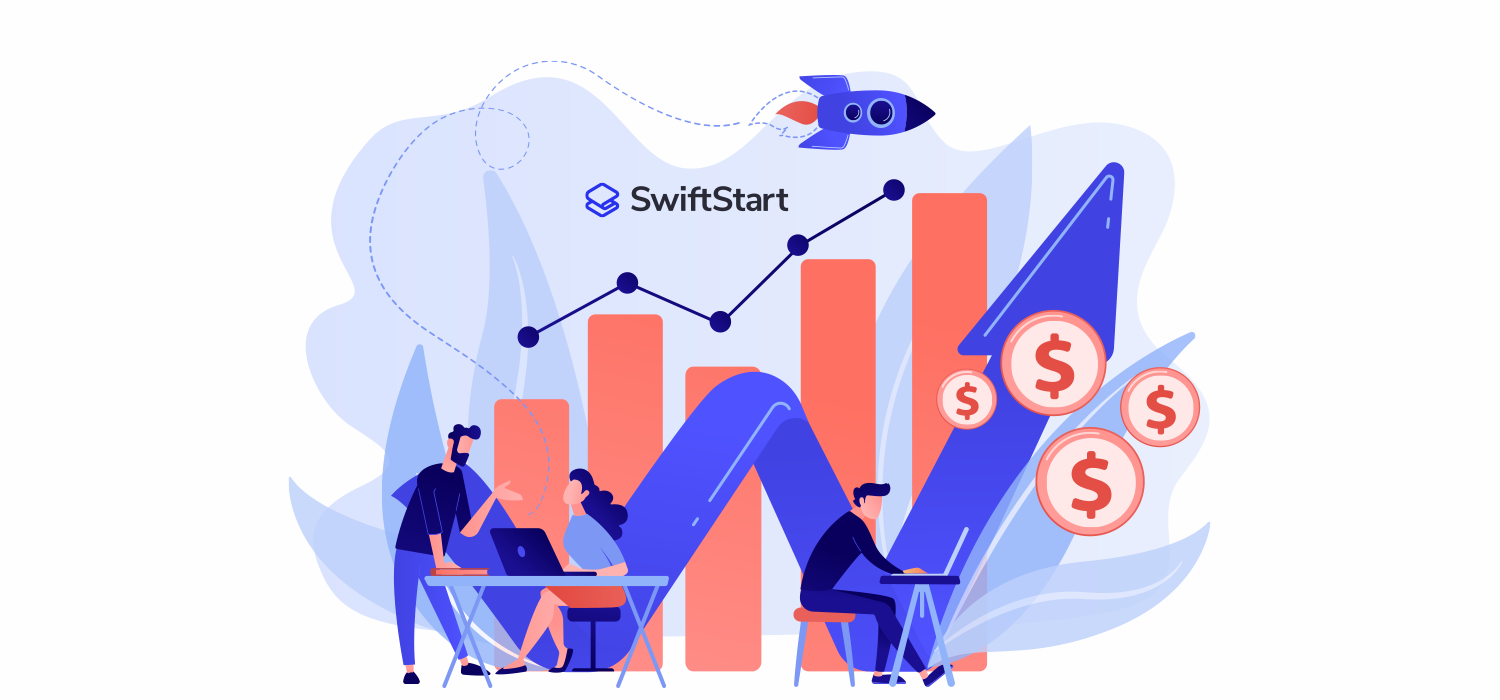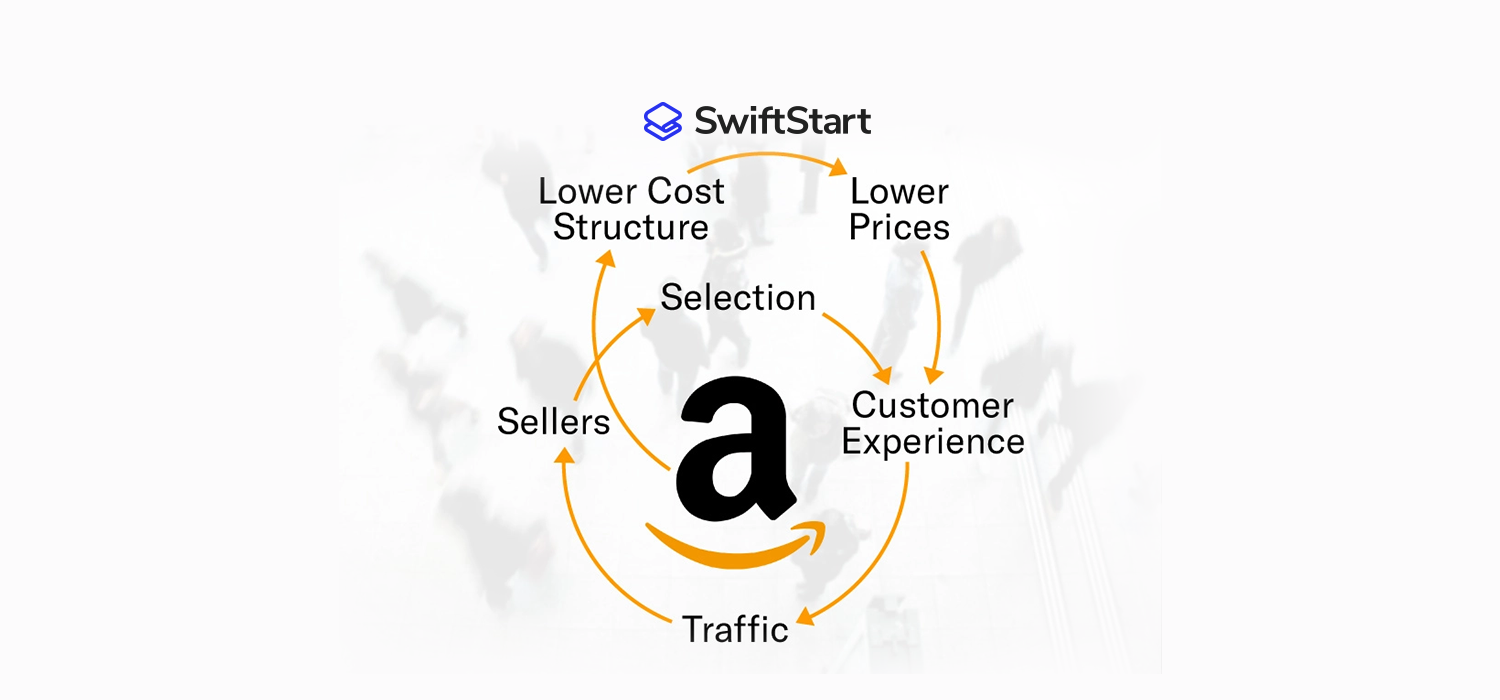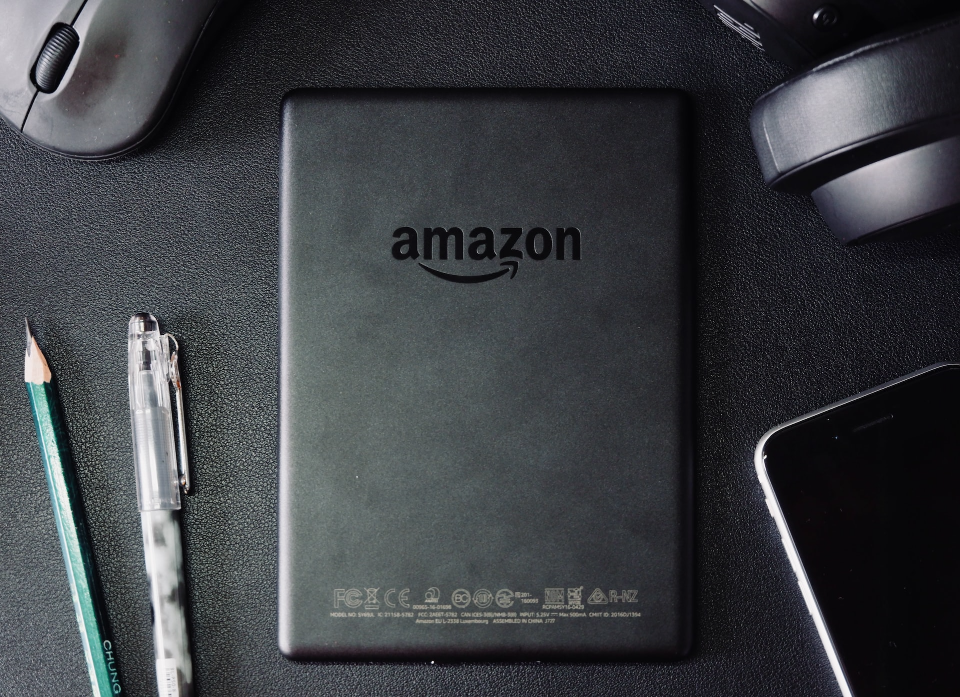SwiftStart launched Fomin during the height of the pandemic. The brand is now expanding its product lines after tripling revenue.

Are you looking to start your own e-commerce business but don't know where to begin? Amazon FBA Private Label may just be the answer you're looking for. With over 300 million active customers and a 45% share of the U.S. e-commerce market, Amazon is the largest online retailer in the world. And with Amazon FBA (Fulfillment by Amazon) Private Label, you can leverage the power of the platform to launch and grow your own brand.
In this post, we'll take a deep dive into Amazon FBA Private Label, exploring how it works, why it's so powerful, and what you need to know to succeed in 2024. Whether you're just starting out or looking to grow your existing business, you won't want to miss this comprehensive guide to Amazon FBA Private Label. You might also be interested to learn the difference between Amazon FBA wholesale vs private label first.
Amazon Private Label refers to the practice of creating your own brand of products and selling them exclusively on Amazon. Private label products are manufactured by a third party and sold under a brand name owned by the seller rather than the manufacturer.
Private labeling has become increasingly popular on Amazon as a way for sellers to establish their own unique brands, increase their profits, and differentiate themselves from competitors. In fact, according to a survey by Jungle Scout, over half of Amazon sellers are now using private labeling as their primary business model.
A prime example of a successful private label brand is Amazon Basics, which sources products from various manufacturers and sells them under its own brand name. Despite not manufacturing the products themselves, Amazon Basics have become a significant player in the market and have generated billions of dollars in sales revenue.
Private labeling also allows sellers to take advantage of Amazon's vast customer base and fulfillment services, making it easier to scale their business. By using Amazon's FBA program, sellers can store their products in Amazon's warehouses and take advantage of their logistics and customer service capabilities. This can save sellers time and resources that can be better used for product development and marketing.
However, private labeling also comes with its own challenges. FBA sellers need to conduct extensive research to find the right product and supplier and to ensure that their product meets all necessary legal requirements. In addition, they need to invest in marketing and branding to build their brand and attract customers.
There are many benefits to selling private-label products on Amazon. Here are a few:
With private label products, you have the freedom to set your own prices, which means you can achieve higher profit margins. Additionally, private label products tend to have lower manufacturing costs, which also contributes to higher margins.
With private label products, you are the only seller on the listing, which means you own 100% of the Buy Box. This means you won't have to compete with other sellers for sales.
Private labeling allows you to control the branding of your products, including the packaging and labeling. This means you can create a unique and recognizable brand that stands out from the competition.
As your private label business grows, you can easily scale your operations on Amazon. The Fulfilled by Amazon (FBA) program allows you to outsource your shipping, customer service, and returns, freeing up time and resources to focus on growing your business.
With private label products, you can develop a loyal customer base by providing high-quality products that are exclusive to your brand. This can lead to repeat business and positive reviews, which can help drive sales and increase your brand's visibility on Amazon.
Creating a private label on Amazon requires a long-term investment and thorough research. Rushing into it without proper planning could lead to wasted resources and money. So, here is an Amazon FBA private label step-by-step guide on how to get started:
The first step in creating an Amazon private label is to set up a seller account. Amazon offers two account options, each with its own advantages and disadvantages.
The first option is the Individual Seller Account, which is free to create but charges a commission of $0.99 for each sale made on Amazon and a 15% consolidated fee on those sales. This account is suitable for sellers who plan on selling fewer than 40 products and are not interested in restricted categories.
The second option is the Professional Account, which costs $39.99 per month, along with additional referral fees and variable closing fees. This account allows you to list more than 40 products on the platform and does not charge a fixed amount per item sold.
It's important to note that obtaining approval to sell restricted products on Amazon requires a Professional Account and a professional accountant. Starting with an Individual Account and then upgrading to a Professional Account can help you save on costs and scale your business as it grows.
After creating an Amazon seller account, the next step in creating a private label on Amazon is to research your product. This step is crucial because it lays the foundation for your entire private label business. You need to find a product that is in demand, has low competition, and has the potential for high profitability.
To start your product research, you can use Amazon's Best Sellers page or tools such as Jungle Scout or Helium 10. Look for products that have a high demand and low competition. Also, pay attention to the product's price point and profit margin.
It's also important to consider the product's quality and sourcing. You want to make sure that the product meets high standards and that you can find a reliable supplier who can provide a consistent and high-quality product.
Once you have identified a potential product to sell, conduct thorough market research to validate your idea. Look for market trends, customer feedback, and potential competitors. This will help you refine your product idea and ensure that there is a market for it.
Remember, the success of your private label depends on finding the right product and supplier, so take the time to research and make informed decisions.
Once you have identified your product, the next step is to find a reliable supplier. You can start by researching suppliers on Alibaba or other online marketplaces. Look for suppliers with good reputations, positive reviews, and experience producing similar products.
When evaluating suppliers, consider factors such as their manufacturing capabilities, pricing, lead times, and minimum order quantities. It’s also important to communicate clearly with potential suppliers and ask for samples to ensure the quality of their products.
Once you have found a supplier you are comfortable working with, negotiate pricing and payment terms. It’s also important to establish clear communication channels and put in place a quality control process to ensure that the products meet your standards.
Remember that building a strong relationship with your supplier is essential for the success of your private label business, so make sure to invest time and effort in finding the right supplier for your needs.
Once you have found a product and a supplier, the next step is to create an optimized Amazon listing. This is a crucial step in your private label journey, as a well-crafted listing can greatly impact your sales and success on the platform.
To create an optimized listing, you should focus on several key elements. These include professional product photography, a competitive pricing strategy, a unique product title and description, and the use of relevant keywords. You may also want to consider creating infographics or videos to showcase your product's features and benefits.
It's important to keep in mind that Amazon's algorithm uses keywords to match products with customer searches. By including relevant keywords in your listing, you can increase your chances of appearing in search results and reaching your target audience.
If you're not confident in your ability to create a high-quality and optimized listing, consider hiring an Amazon agency to help you. This investment can pay off in the long run by helping you stand out from the competition and increase your sales.
After creating an optimized Amazon listing, the next step is to choose your fulfillment method. There are two main fulfillment options available to private label sellers on Amazon: Fulfillment by Merchant (FBM) and Fulfillment by Amazon (FBA).
Fulfillment by Merchant (FBM) means that you are responsible for storing, packaging, and shipping your products to customers. This can be a good option if you have a small number of products and prefer to handle shipping and customer service yourself. However, FBM does not offer the same level of convenience and scalability as Fulfillment by Amazon.
Fulfillment by Amazon (FBA) means that Amazon stores, packages, and ships your products to customers. This option provides a hands-off approach to order fulfillment, as Amazon takes care of shipping, customer service, and returns. FBA also comes with additional benefits, such as Prime eligibility and increased visibility in search results. However, FBA does come with fees and storage costs.
Consider the size of your business, the amount of inventory you plan to carry, and your budget when choosing between FBM and FBA. It is also important to note that you can use a combination of both fulfillment methods if you prefer.
Once your product is ready for sale, it's time to launch and promote it on Amazon. Here are some steps you can take to ensure a successful launch:
Remember, launching and promoting your product is an ongoing process. Continuously monitor your listing's performance and adjust your strategy as needed to improve sales and visibility.
Private label products can vary greatly, but some popular examples of successful private-label products on Amazon include supplements, skincare products, electronics accessories, pet supplies, and kitchen gadgets. Let's have a look at some of these examples in more detail:
Here is one of the most successful private label products on Amazon - Amazon Basics Batteries. These batteries are available in a variety of sizes and have become popular among Amazon customers due to their affordability and reliability. Amazon Basics Batteries have received thousands of positive reviews and are often top sellers in the battery category. The success of this private label product demonstrates the power of offering a high-quality, affordable alternative to well-known brands.
The e.l.f. Monochromatic Multi Stick is a popular private label cosmetic product that has received thousands of reviews on Amazon. It comes in a variety of shades and is marketed as a multi-use stick that can be used on the cheeks, lips, and eyes. The product has been praised for its affordable price, easy application, and long-lasting wear.
WaterWipes is a popular private label brand that produces baby wipes made with 99.9% water and a drop of fruit extract. The brand has gained popularity for its natural and gentle ingredients and has received positive reviews from parents and pediatricians. With thousands of reviews on Amazon, WaterWipes has become a trusted and well-known private label product in the baby care category.
At SwiftStart, we understand the challenges and complexities involved in launching a successful private-label Amazon FBA product. We offer a range of Amazon advertising services to help you navigate the process, including product research, supplier sourcing, listing optimization, and advertising campaigns. Our data-driven approach ensures your product is optimized for maximum visibility and conversions, and we can also help you navigate Amazon's complex policies and regulations.
Our team of experienced professionals is dedicated to your success, and we aim to help you launch a successful private label FBA product on Amazon and achieve long-term growth and profitability. Contact us today to learn more about how we can help you with your Amazon strategy.
If you find this article helpful then join our social footprint for more Amazon insights and growth hacks. Become a part of our Amazon Facebook community group to stay updated with the latest Amazon news, tips, and tricks. Follow us on LinkedIn for expert guides and Amazon growth strategies. Our Amazon experts are always available to answer any questions and provide personalized support. Check out our SwiftStartUP Amazon podcast for exclusive insights from experts and success stories from top Amazon sellers. Don't forget to claim your free Amazon account audit right now!
To start an Amazon FBA private label, research potential products, find a supplier, create an optimized listing, choose a fulfillment method, and launch and promote the product.
Amazon FBA private label refers to a business model where a seller sources a product from a manufacturer, creates their own brand and packaging, and then sells the product under their brand name using Amazon's FBA (Fulfillment by Amazon) service for storage, shipping, and customer service.
In the world of Amazon selling, Platinum Keywords emerge as the secret weapon for sellers aiming for higher product ASINs on Amazon and a superior shopping experience. Highlights Why We Wrote This? This content aims to empower Amazon sellers with comprehensive insights into the strategic significance of Amazon Platinum Keywords. By identifying, utilizing, and optimizing […]
)
The beginning of the customer journey is an important phase for retailers and marketers. They focus their efforts on making sure that shoppers know about products. Through their brand awareness campaigns, they try to educate their target audience and convince them that their products are fulfilling their desires. But if you’re looking to grow your […]
)
Are you looking to maximize your eCommerce sales on Amazon? With high competition, it is essential to have a comprehensive and effective Amazon sales strategy to stand out. From creating an alluring product listing to understanding the importance of inventory management, this guide will provide you with ten proven tips to boost your sales on […]
)
STREAMLINING BUSINESS PROCESSES As a small business owner, you want to make sure that your processes are scalable. This means they can handle an increase in traffic and sales without stressing out the system or compromising customer satisfaction. The best way I've found how scale-up processes within any company was by looking at what worked […]
)
Amazon's marketplace is full of countless products and brands competing for attention. In this case, Amazon product research is the differentiator to either make or break their business. Highlights Why We Wrote This? With this guide, we provide our aspiring Amazon sellers with a comprehensive understanding of Amazon product research. Amazon product research is important […]
)
Retail brands that operate on the brick-and-mortar model typically have a disadvantage when it comes to managing their Amazon marketplace strategy. Outsourcing to a number of agencies is an effective way for brands to have their needs met without the need or expense associated with hiring full-time employees. But this can have unwanted repercussions for […]
Amazon, the world's largest online retailer, has a business model that has disrupted traditional retail and changed the way people shop. At the core of Amazon's success lies its Flywheel, a powerful growth engine that has fueled the company's expansion into new markets and propelled it to become one of the most valuable companies in […]
)
Looking to maximize your sales potential this Q4 on Amazon? With the holiday season approaching, sellers are gearing up for the year's most lucrative sales period. For Amazon sellers, mastering this season is a must. Whether avoiding stock shortages or dealing with Amazon's shifting inventory limits, staying on top of things this Q4 demands meticulous […]
)
There is no denying that Amazon is the world's largest online marketplace, with several billions of goods being sold on its platform. In 2019, estimates revealed that almost every individual in America possesses an Amazon Prime membership, and the numbers are bound to rise. The recent pandemic is a contributing factor to the rise of […]
)
Amazon is one of the world's largest and most successful eCommerce platforms, with millions of products sold daily. As a result, competition among Amazon sellers is fierce, and many use off-channel traffic sources such as paid search, social media, and email marketing to drive traffic to their product listings. However, until recently, there was no […]
)